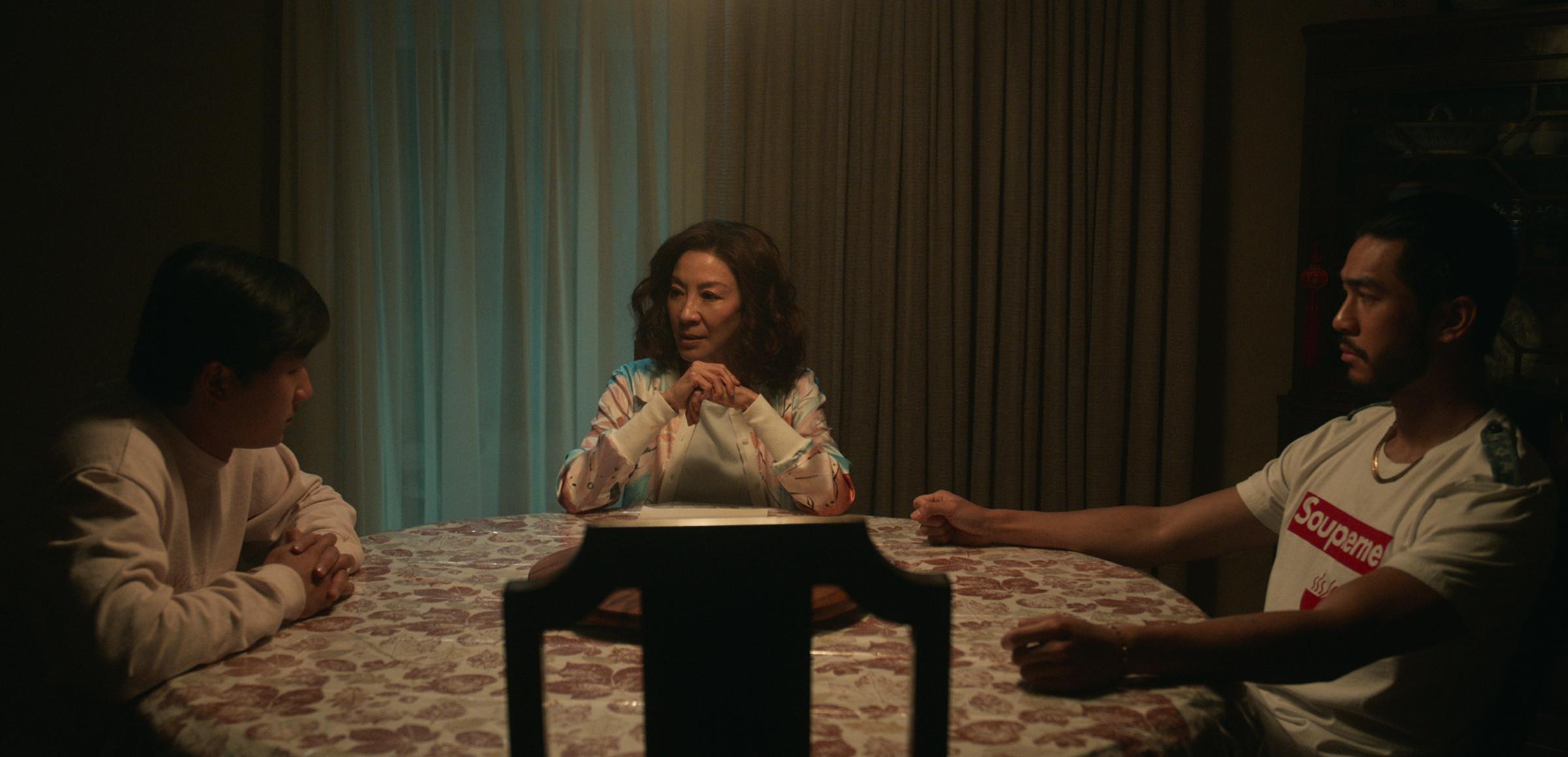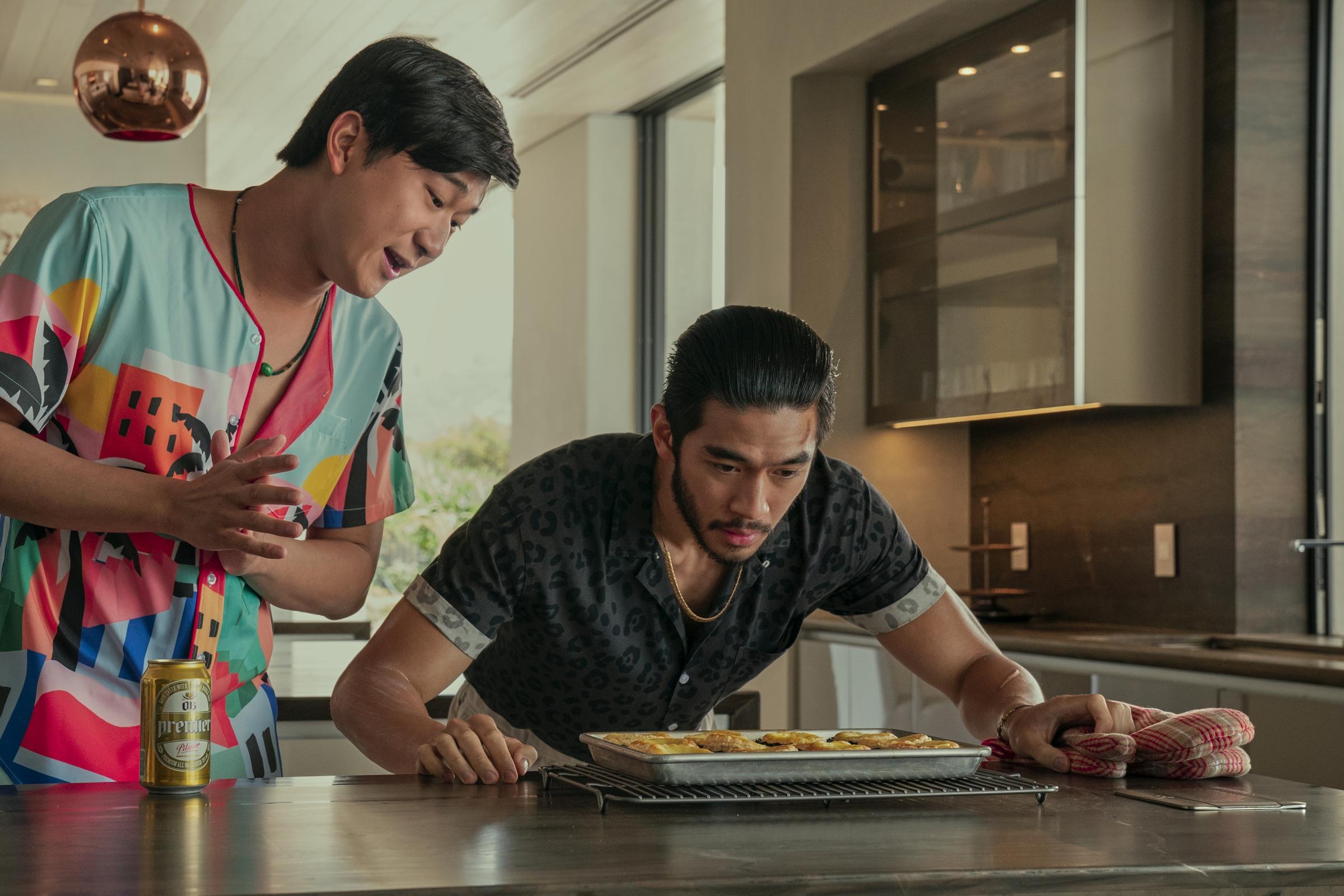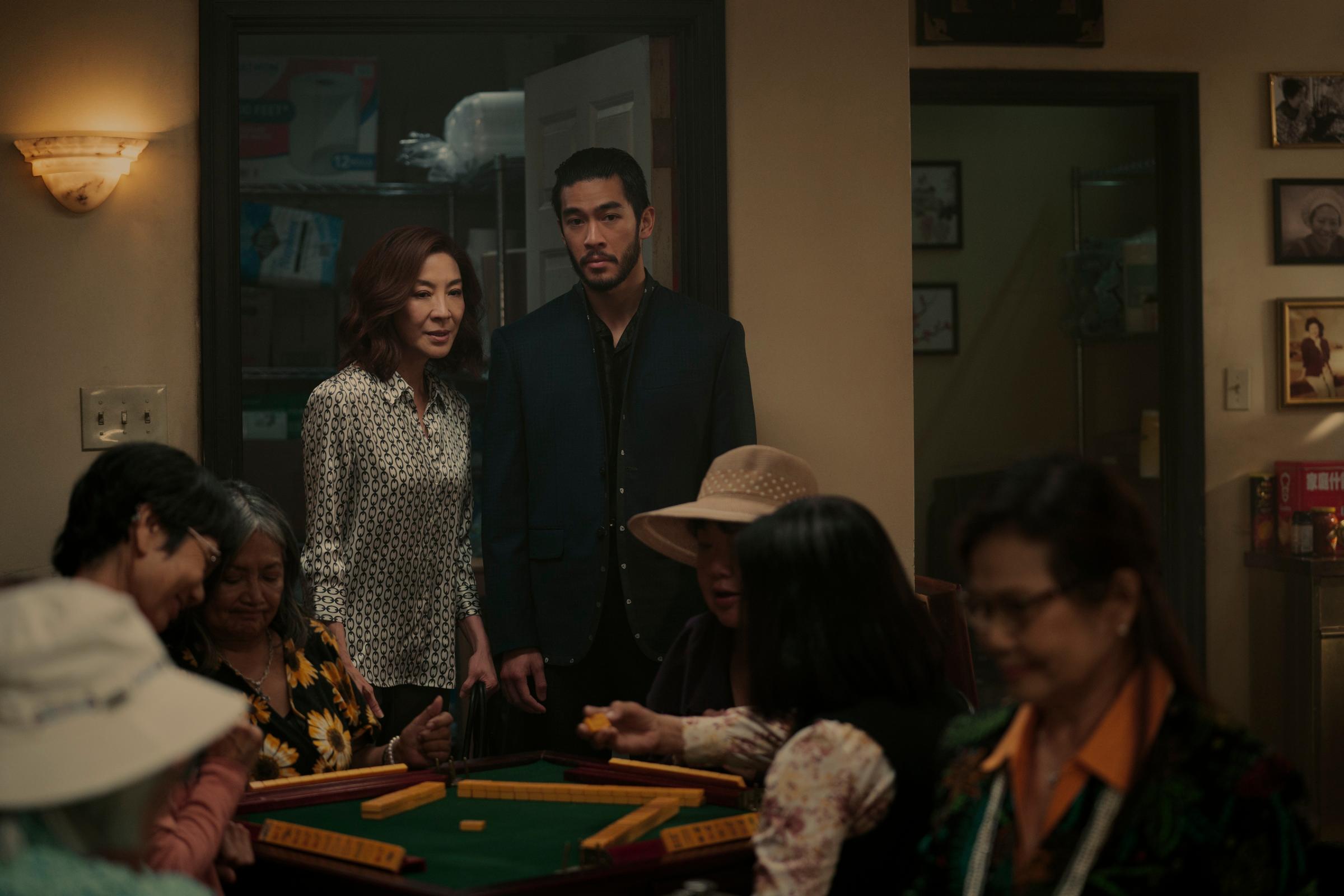Sometime between age 40 and 50, when their male counterparts are still getting cast as superheroes and romantic leads, most women in Hollywood get shunted into that blandest of supporting roles: somebody’s mom. But Michelle Yeoh, at 61, is not the typical star. Over the past several years, the icon of Hong Kong martial-arts cinema has reshaped a tired archetype in her own fierce image. From her delectably imperious performance as Eleanor Young in Crazy Rich Asians to her Oscar-winning turn as the multiverse-traversing Evelyn Wang in Everything Everywhere All at Once, Yeoh isn’t just playing mothers; she’s reinventing the matriarch.
Her character in The Brothers Sun, an eight-episode Netflix action dramedy from newcomer Byron Wu and frequent Ryan Murphy collaborator Brad Falchuk, continues this wonderful tradition. At first glance, Yeoh’s Eileen Sun (a.k.a. Mama Sun) is a type we’ve seen many times before: the immigrant mother who invests all her energy in the success of the next generation. Eventually, however, her own ambitions—and her relentless drive to achieve them—come into focus. It is this arc, and this performance, rather than the more predictable trajectories of Mama’s titular sons, that make the series more than just a fun, if bloated, spectacle.

The Brothers Sun is a tale of two halves of one nuclear family living oceans apart. In a modest Los Angeles home, Eileen dotes on her son Bruce (Sam Song Li), a dorky medical student. What she doesn’t know is that he’s been using her tuition checks to finance his true passion: improv. What he doesn’t know is that his estranged father, known in the Taiwanese criminal demimonde as Big Sun (Johnny Kou), runs a powerful triad, the Jade Dragons—and has groomed a brother Bruce hasn’t seen since childhood, Charles (Justin Chien), to be a deadly assassin. Years ago, the Suns split up as a safety measure. Their mantra: “Protect the family.”
Which is precisely what Charles is doing when he arrives in L.A. after witnessing an attempt on his father’s life—in Charles’ own luxurious Taipei apartment—that has left Big Sun in a coma. He’s here to act as Eileen’s bodyguard, though he and Bruce have yet to discover precisely what makes her so valuable to their dad. (Hint: It’s not necessarily because he loves her so much.) And because Charles’ enemies have been tracking his movements, it’s only a matter of time until he starts slaying attackers in his mom’s kitchen and the Suns have to explain to Bruce that he’s the scion of a criminal empire. Meanwhile, desperate to earn back his misappropriated tuition money, Bruce reluctantly agrees to help his dopey but loyal best bud TK (Joon Lee) sell drugs, as part of a small-time operation that would barely register on the Jade Dragons’ radar.

Fast-paced, funny, and packed with inventive scenes of hand-to-hand combat, the first episode is auspicious. Thanks to a talented cast and wild action sequences, the show remains fairly entertaining throughout. The Brothers Sun is also smart about noting the contradictions inherent in Hollywood’s reductive Asian stereotypes—the “model minority” nerd vs. the cutthroat gangster vs. the so-called tiger mom—without congratulating itself for the trenchant critique. Yet in the second half of the season, as episodic runtimes swell to over an hour and the question of who is pursuing the Suns draws in law enforcement, vigilantes, and more, even the freshest fight choreography starts to seem as though it exists, in part, to pad out a story better suited to a feature.
TV’s great family dramas—The Sopranos, Succession, The Americans—tend to earn their longevity by endowing each member of the central clan with a discrete, complex personality and motivations. But here, the Sun brothers’ relationship is mostly boilerplate odd-couple fare (although Charles’ movingly pure obsession with baking and the undertone of melancholy in Chien’s performance complicate a character who earned the nickname Chairleg, as a young teenager, by beating a slew of assassins to death with only the latter implement during a family dim sum brunch). Big Sun mostly looms in the background as a cartoon villain. We learn quirky details about the Suns’ various foot soldiers and rivals, without ever really getting to know them.

The exception is Eileen. Wu and Falchuk assembled an all-Asian writers’ room, and the effects of that choice feel most palpable in a character who knows how to wield soft power within her world. She seems to know everyone in L.A.’s Taiwanese and Chinese American communities, from restaurant owners to mahjong-playing dowagers to “Auntie Cathy’s cousin-in-law, Grandma Joy” who recommends a crooked pet shop proprietor willing to feed dead bodies to animals. And she uses those connections to gather intelligence, quietly shoring up her own influence.
It’s hard to imagine another actor inhabiting this character as fully or as shrewdly as Yeoh. Yes, she gets to fight—spectacularly. Of course it’s glorious, in a twisted way, when her sons get home one night to find her taking a power drill to a corpse. Yet what’s more remarkable is the seamlessness with which Yeoh, who radiates determination, unites two sides of a woman who is, at once, an overprotective mother and the secret weapon of Taipei’s predominant triad. When it comes to protecting the family, the men around her have nothing on the great Mama Sun.
More Must-Reads from TIME
- Donald Trump Is TIME's 2024 Person of the Year
- Why We Chose Trump as Person of the Year
- Is Intermittent Fasting Good or Bad for You?
- The 100 Must-Read Books of 2024
- The 20 Best Christmas TV Episodes
- Column: If Optimism Feels Ridiculous Now, Try Hope
- The Future of Climate Action Is Trade Policy
- Merle Bombardieri Is Helping People Make the Baby Decision
Contact us at letters@time.com